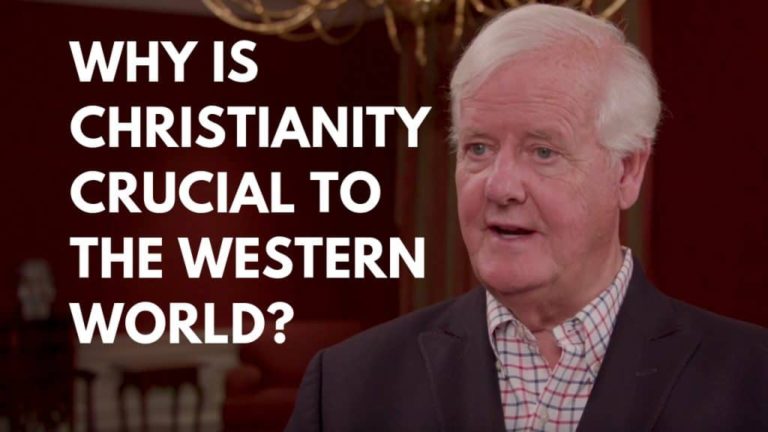Gen La(Z)y? Discovering Purpose through a Christian Worldview
Editor's Note: The views and opinions expressed in this article are those of the author and do not necessarily reflect the official policy or position of Regent University, its faculty, administration, or affiliates.
Brief summary/description: This article begins by addressing current data and trends about the Gen Z workforce, some of which contrast with each other. It’s meant to provide direction and encouragement for Gen Z without being overly prescriptive. It’s also a call for Regent students to stand out among their peers.
“(A) whopping six in 10 employers had already fired college graduates who were hired in 2024” (Blake, 2024). “Gen Z and young millennials being ‘not engaged’ at work is somewhat higher than that of more senior counterparts” (Lee, 2023). “If you ask Gen Z, the rumors are true — it is the laziest generation, according to a new survey from Homebase” (Blake, 2024).
Recent data reveal troubling trends in Gen Z’s work ethic, with surveys and articles from Newsweek, Stanford Report, and Forbes highlighting employer concerns about Gen Z’s lack of preparation, engagement, and professionalism. But is Gen Z truly unmotivated, or are we witnessing a broader shift in workplace values? Like most issues, the truth is nuanced. Alongside these critiques, some describe Gen Z as resourceful and flexible, prioritizing “work-life balance” (De Witte, 2024). Generational bias may be shaping these perceptions, as Suzanne Blake suggests in Newsweek: Every generation often labels the next as lazy. Notably, many young people today seek meaningful work that allows them to balance their personal and professional lives.
So how can Gen Z Christians stand out among their peers in these changing times? The Sunday school answer is “Jesus.” More practically, understanding why you were created and God’s purpose for His people can be life-changing when it comes to one’s attitude toward work.
Who Made You? Why?
Gen Z Christians have a unique opportunity to excel among their peers. Part of that starts with having a definitive Christian worldview. God created us in His image, and He created us to glorify and enjoy him forever (pca.org). The post-postmodern world tells us to be what we want, pursue our dreams, and be true to ourselves. This is a messy worldview (to say the least). In reality, we are limited. We do not have complete freedom to seek only our personal fulfillment, to define our identity, or to treat people and the world around us as though they exist for our purposes (Noble, 2021). That limitation is a grace to us as believers. God has made us in His image, and we can cling to the concrete truths of the Bible instead of fruitlessly creating our own reality and pursuing the authentic self above all.
A Word on Expressive Individualism
Similar to the idea of the authentic self is expressive individualism. It can sound like a positive at first, but there’s more to it, as described in The Rise and Triumph of the Modern Self by Dr. Carl R. Trueman of Grove City College. There is a stark difference in attitudes toward work between modern generations and those of the Baby Boomer generation and earlier generations. Dr. Trueman used the example of his grandfather who worked in a factory from the age of 15 and measured work fulfillment in his ability to put food on the table and keep a roof over his family’s head. He points out that if his grandfather was asked if he found his job “satisfying” he might not have understood the question, as that was not the primary motivation to work (Trueman, 2020, p.47, emphasis mine). In contrast, Trueman states that while his grandfather’s definition of job satisfaction was empirically based, recent generations consider job satisfaction as a question of “feelings” (Trueman, 2020, p.47). This is concerning, as we know feelings are not a reliable source of truth. I want to add a caveat, that God made us unique, we all have our own calling, and things that make us individuals. The danger is when we take that God-given uniqueness and prioritize self over His design, building identity around personal desires and rejecting anything that doesn’t align.
Work as Though for the Lord
In our office, we’ve seen Gen Z graduate assistants who are punctual, curious, innovative, technologically adept, and professional. We’ve also had assistants who needed more motivation and guidance. As Christians, we have a chance to disciple those we work with. Thankfully, God’s truth in the Bible gives us a lot of scripture about how to work. Colossians 3:23-24 is a great place to start. “Whatever you do, work heartily, as for the Lord and not for men, knowing that from the Lord you will receive the inheritance as your reward. You are serving the Lord Christ” (ESV).
As Gen Z prepares for high school, college, and beyond, here are a few points of reflection to help develop a Christian worldview:
– Understand your purpose as God’s creation (Isaiah 43).
– Recognize God’s purpose for work (Proverbs 16:3).
– Reflect on the cultural mandate (Genesis 1).
– Develop a Christian worldview (resources include Ryken and Plantinga).
Call to Action
Finally, a call to Regent University students or any Christian reading this: You have an opportunity to shine as Christians in your field. Embrace a biblical view of work and remember that work is a way to serve God. Stand out by being diligent, teachable, and ready to encourage others. Let Philippians 2:12-18 guide you: “Do all things without grumbling… shine as lights in the world… holding fast to the word of life.” Christians in every profession can set a distinct example, showing that a Christ-centered work ethic not only blesses others but also reveals the character of God as imaged in His people.
References
Blake, S. (2024, June 20). Gen Z says it’s the laziest generation. Newsweek. Retrieved from https://www.newsweek.com/gen-z-says-theyre-laziest-generation-1915450
Blake, S. (2024, September 23). Companies are quickly firing Gen Z employees. Newsweek. Retrieved from: https://www.newsweek.com/companies-are-quickly-firing-gen-z-employees-1958104
De Witte, M. (2024, February 14). 8 ways Gen Z will change the workforce. Stanford Report. Retrieved from: https://news.stanford.edu/stories/2024/02/8-things-expect-gen-z-coworker
English Standard Version Bible. (2001). ESV Online. esv.org
Noble, A. (2021). You are not your own: Belonging to God in an inhuman world. Intervarsity Press
Trueman, C. (2020). The rise and triumph of the modern self: Cultural amnesia, expressive individualism, and the road to sexual revolution. Crossway.







